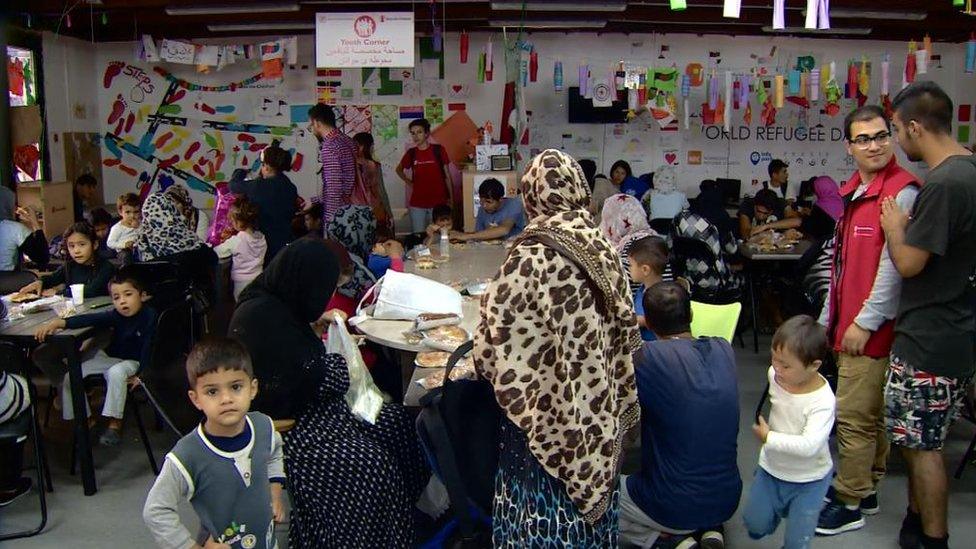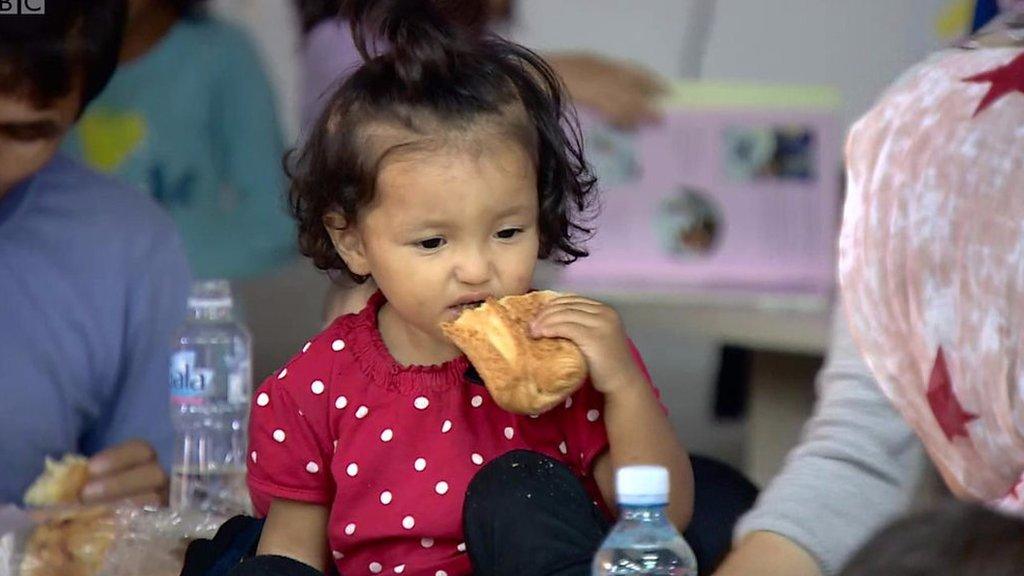What is life like for a migrant in Serbia?
- Published
Children in Serbia with donated toys
A Scottish charity is loading up another two trucks full of clothing and blankets to send to Serbia as aid agencies are predicting a second wave of migrants and refugees in the Balkans. Agencies operating there fear the local authorities will not have the resources to deal with it. BBC Scotland's Cameron Buttle has been to Belgrade to see where and why the aid is needed.
These children were tough. Even though they were play fighting they were still knocking lumps out of each other, tripping over stones and a broken pavement slab, not a word of complaint or tear shed. I wondered how my own children would have fared in amongst them.
I was sitting in a park near my hotel opposite the bus station. Orange plastic netting kept people off the open spaces.
Cramped rooms
I was told that a few weeks ago, before it was put up, hundreds of migrants and refugees had camped out here before it was cleared. Police patrolled up and down as I sat there.
The family in the park were waiting for a free bus service to take them back out of the city to camps on the outskirts. I'd seen them earlier in the day at an aid post a couple of streets away.

It was on the second floor of an old book store. Downstairs it was crammed with men, mostly young, crowding around a TV screen or waiting a turn on a computer.
The centre is run by many charities and organisations working together. Here people can contact their families or research the latest on borders crossing routes.
Upstairs was the family area. Hot, crowded and very noisy. The volunteers were constantly winding their way through the cramped rooms to help, playing with balloons with young children or helping mothers find a space to feed their babies discreetly.
Struggling to cope
While I was there, one woman just broke down in tears. A volunteer told me the woman was simply overwhelmed by her plight. She was comforted and then she seemed to apologise for breaking down.
As she wiped her tears away and hugged her child, another family wound their way up the stairs, new arrivals, wide-eyed and bemused. Just some of the 300 arriving in Serbia every day.
In the past couple of months severe border restrictions have been enforced to the north of Serbia.
That means the country is becoming a bottleneck and many agencies are predicting a second wave of migrants and refugees. At the moment they say they are struggling to cope.
One aid worker told me that they just have to take it day by day and hope for the best, hope that more help will come soon.
- Published30 August 2016
